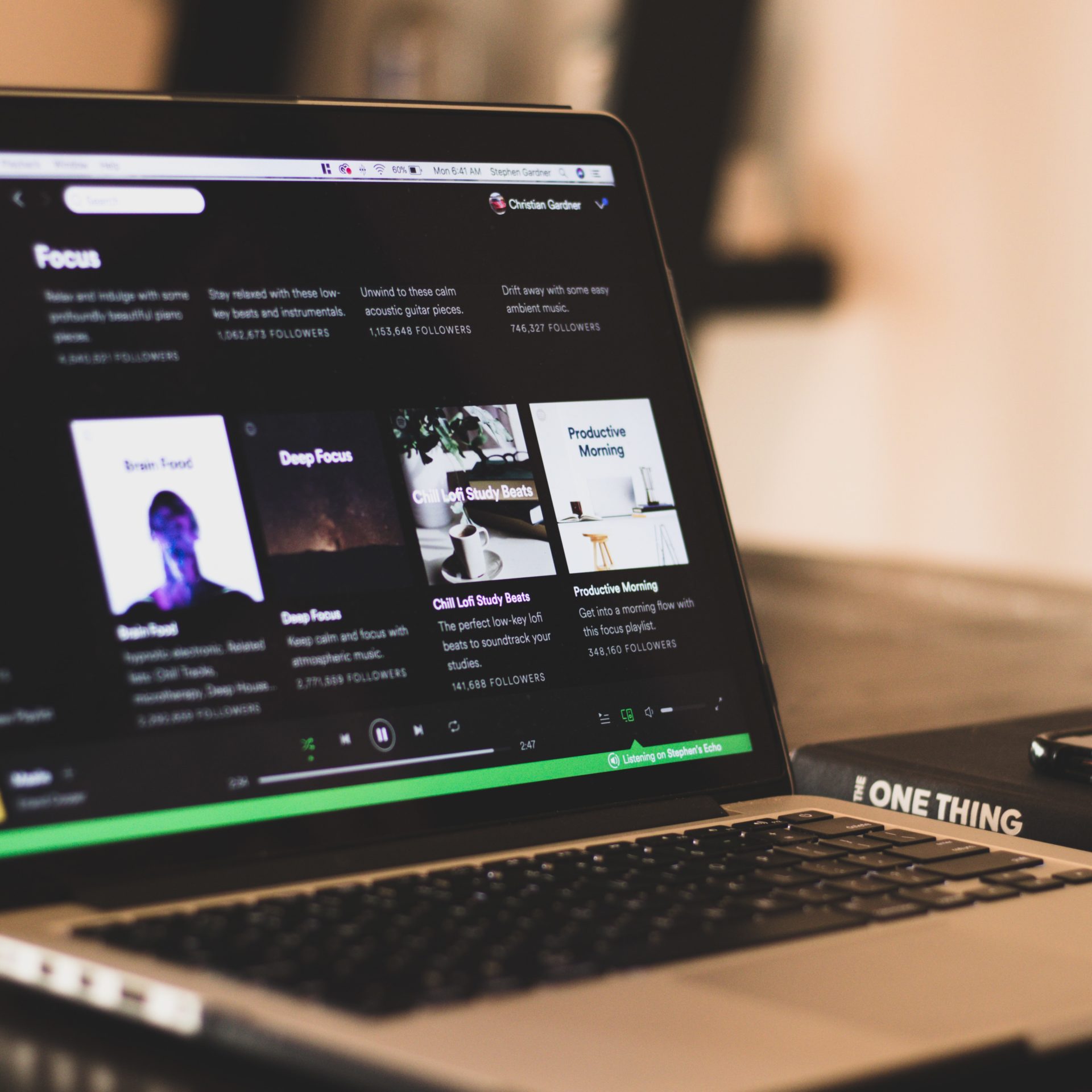

BrandVue’s Most Loved Media Brands 2022
In a world where everything is expected to be on-demand, it’s unsurprising to see that Spotify scores higher than more traditional audio platforms for Brand Love in our Top 100 Most Loved Media Brands League Table.
Unlike traditional radio stations or other audio outlets, Spotify offers a host of features that speak to the on-demand nature, that we so desperately crave.
So, what can Spotify teach us about Brand Love and how can its success be applied to other media brands?
Consumers are only going to demand more and more personalisation within the media space, so the ability to tap into that through using sophisticated data collection is all the more important.
Spotify Est. 2008
Spotify transformed audio listening forever when it launched in 2008, establishing itself as a music streaming service in a way that no one else had.
Despite launching seven years prior, Apple’s iTunes- which provided a downloadable music service – never gained the success that Spotify did. Instead, Apple launched its own streaming service in 2015 (Apple Music), providing the closest like-for-like competitor to Spotify, and yet we see that it ranks 20th in our Brand Love list.
In a market where Apple dominates tech, the brand has not been able to make the same waves in the music streaming industry as Spotify, despite offering more songs. This illustrates the strength of an innovative brand; according to our BrandVue data, 21% of consumers believe that Spotify is an exciting brand, compared to just 16% for Amazon Music and 15% for Apple Music.
What we can learn: It’s not always possible to be a brand that breaks into a relatively immature space and challenge the competition but establishing a strong brand image that innovates to meet consumer needs is paramount to success.
What’s the hype about personalisation?
Consumer trends are continuing to point towards the need for personalisation. In fact, 71% of consumers expect companies to deliver personalised interactions and 76% get frustrated when this doesn’t happen. McKinsey’s Next in Personalisation 2021 Report shows that companies who excel at demonstrating personalisation and customer intimacy, can generate faster rates of revenue growth than their competitors and this is something that has become synonymous with Spotify.
The ability to curate playlists and expose users to recommendations based on listening habits is something that sets Spotify apart from others in the audio space. It’s been reported that much of Spotify’s success is due to its sophisticated data collection, allowing users to listen to music around a particular moment, mood or trend, rather than just the same over used genres or songs. This is something that even its closest rivals can’t do and is lightyears away from more traditional radio stations and music platforms. A third of consumers (33%) believe that Spotify is for ‘people like them’, according to BrandVue, showing that Spotify’s personalisation tokens help drive success, compared to just 17% for Apple Music.
What we can learn: Consumers are only going to demand more and more personalisation within the media space, so the ability to tap into that through using sophisticated data collection is all the more important. Exposing consumers to content that they don’t even realise exists, but aligns with their preferences, without feeling intrusive, is key to keeping them engaged.
Podcasts are climbing the charts
It seems amiss to discuss audio listening, without acknowledging the rise of podcasts. As of 2021, there are 19.1 million podcast listeners in the UK, with that number estimated to increase to 28 million by 2026. There’s no denying that the pandemic has helped to boost their popularity, but it provides an opportunity to reach a whole new audience over and above music streaming.
There’s believed to be 3.2 million podcasts on Spotify, providing further audio listening in one place. Despite being the pioneers of podcasting, Apple fails to offer a similar product, as it has a separate podcast app, which goes against the seamless experience we know to be so important to consumers. Not only does Spotify recommend music based on listening habits, but also podcasts too, providing a curated feel beyond just music.
What we can learn: A really interesting point to note about podcasts on Spotify is that even Premium subscribers get exposed to adverts on podcasts. Media companies have been continuing to invest in podcasts and this provides a real opportunity to monopolise on Spotify’s captive, far reaching audience. Whilst the music streaming side of Spotify is difficult for advertisers to capitalise on, the rise of podcasts, coupled with Spotify’s continued success, provides a clear opportunity to get your brand noticed.
There’s no denying that Spotify has experienced huge success and has stolen the hearts of consumers, arguably, being well-deserving of its fifth place ranking in Savanta’s Top 100 League Table.
It’s clear to see why Spotify has been successful, but what does this mean for your brand? What could you do to help your brand reach this level of success?
Download BrandVue’s Most Loved Media Brands report to discover the UK’s Top 100 Most Loved Media Brands as well as expert analysis on where the industry is heading and what brands can do to become more loved by consumers.








